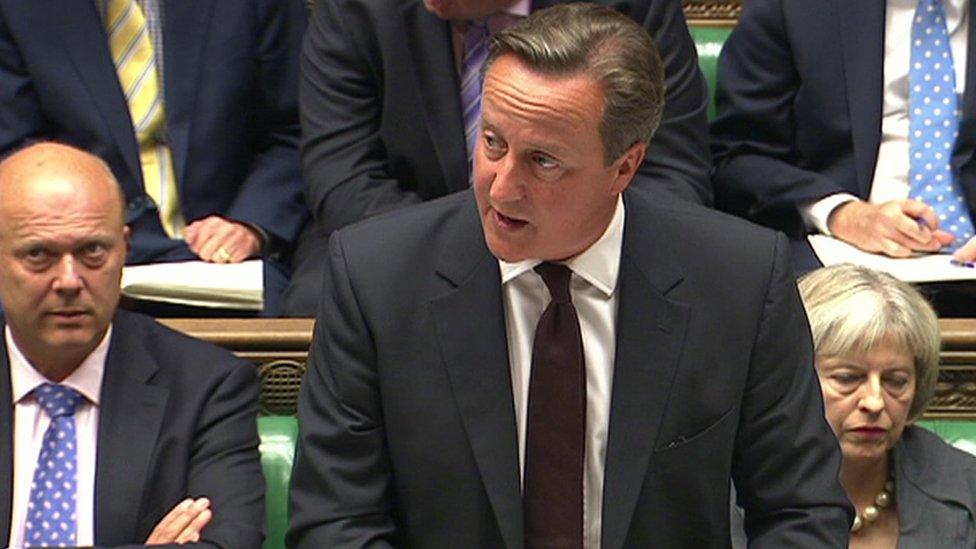One strike in Syria - what next?
- Published

David Cameron told MPs the attack had been carried out in Britain's self-defence
You might be surprised by this afternoon's news that British bombing killed British nationals in Syria in the last few weeks.
Didn't MPs vote against bombing Syria a couple of years ago? In the last few days haven't the prime minister and the chancellor made clear they would only take military action in Syria if there was a consensus here in the UK? In any case, isn't it entirely unusual, almost unheard of in modern times, for British military action to take the life of a British citizen?
The answer to all three of those questions is yes.
But just a couple of weeks ago, an unmanned British Reaper drone did drop a missile on a group of so-called IS fighters in Syria that killed two British citizens.
One, the target, Reyaad Khan, was according to David Cameron involved in plotting a barbaric attack on British soil. In the PM's view and, he says, the view of the government's most senior lawyer - the attorney general - that made the attack entirely proper and legal.
"There was a terrorist directing murder on our streets and no other means to stop him," the PM said. Although we've been told repeatedly British drones have been flying over Syria to carry out surveillance, in the small print the government always retained the right to act in extremis without specific permission from MPs.
For Number 10, that action is distinct from its decision on whether to take military action and have RAF pilots join US forces flying bombing missions over Syria. The prime minister still wants to persuade MPs to back that plan this autumn, although a vote is unlikely until after the party conference season wraps up.
But this strike does add a sense of urgency to those making the arguments for intervention - a reminder that so-called IS plan and plot in Syria, that the direct threat to the UK is real and getting more serious.
But there are calls tonight from opposition politicians for more information and reassurance on the particular circumstances around this attack, accusations already that the strike is evidence of British "mission creep".
As the operation appears to have been led by intelligence the truth is we may never know what really happened, what the precise circumstances were.
But the fact that we know a British plane has dropped a British bomb in Syria, on British citizens may mean, earlier than expected, the battle lines in this debate are drawn.
- Published7 September 2015

- Published12 October 2017

- Published26 March 2015